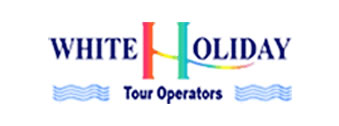|
|
- Total Area: 10,452 sq km
- Coastline: 225 km
- Terrain: Narrow coastal plain; Al Biqa` (Bekaa Valley) separates Lebanon and Anti-Lebanon Mountains
- Climate: Mediterranean; mild to cool, wet winters with hot, dry summers
- Natural Resources: Limestone, iron ore, salt; water-surplus state in a water-deficit region
- Maritime Claims: Territorial sea: 12 nm
- Environment: Rugged terrain historically helped isolate, protect, and develop numerous factional groups based on religion, clan, ethnicity; deforestation; soil erosion; air and water pollution; desertification
- Note: Nahr al Litani only Major River in Near East not crossing an international boundary
People of Lebanon
- Religious Affiliations: 17 legally recognized groups - 5 Islam (Alawite or Nusayri, Druze, Isma`ilite, Shi`a, Sunni);11 Christian,consistingof 4 Orthodox Christian (Armenian Orthodox, Greek Orthodox, Nestorean, Syriac Orthodox), 6 Catholic (Armenian Catholic,Caldean, Greek Catholic, Maronite, Roman Catholic and Syrian Catholic) and the Protestants; 1 Jewish
- Major Languages: Arabic and French (both official); Armenian, English
- Ethnic Divisions: Arab 95%, Armenian 4%, and other 1%
- Capital: Beirut
- Type: Republic
- Long Form of Name: Republic of Lebanon; note - may be changed to Lebanese Republic
- Independence: 22 November 1943 (from League of Nations mandate under French administration)
- Administrative Regions: 6 govern orates (muhafazat, singular - muhafazah); Al Biqa, `Al Janub, Ash Shamal, Bayrut,Jabal Lubnan,Hermel.
- Constitution: 26 May 1926 (amended)
- Legal System: Mixture of Ottoman law, canon law, Napoleonic code, and civil law; no judicial review of legislative acts; has not accepted compulsory ICJ jurisdiction
- Executive Branch: President, prime minister, Cabinet; note - by custom, the president is a Maronite
Christian, the prime minister is a Sunni Muslim,
and the speaker of the legislature is a Shi`a Muslim
- Legislative Branch: Unicameral National Assembly (Arabic - Majlis Alnuwab, French - Assemblée Nationale)
- Judicial Branch: Four Courts of Cassation (three courts for civil and commercial cases and one court for criminal cases)
- Elections: National Assembly: elections should be held every four years
- Military Branches: Lebanese Armed Forces (LAF) (including Army, Navy, and Air Force)
- Int'l Org. Membership: ABEDA, ACCT, AFESD, AL, AMF, CCC, ESCWA, FAO, G-24, G-77, IAEA, IBRD, ICAO, ICC, ICFTU, IDA, IDB, IFAD,IFC,ILO, IMF, IMO, INTELSAT, INTERPOL, IOC, ITU, LORCS, NAM, OIC, PCA, UN, UNCTAD, UNESCO, UNHCR, UNIDO, UNRWA, UPU, WFTU, WHO,WIPO, WMO,WTO
- Overview: Since 1975 civil war has seriously damaged Lebanon's economic infrastructure, cut national output by half, and all but ended Lebanon's
position as a Middle Eastern entrecote and banking hub. Following October 1990, however, a tentative peace has enabled the central government to begin restoring control in Beirut, collect taxes, and regain access to key port and government facilities.A financially sound banking system and resilient small- and medium-scale manufacturers have also propped up the battered economy. Family remittances, banking transactions, manufactured and farm exports, the narcotics trade, and international emergency aid are main sources of foreign exchange. In the relatively settled year of 1991, industrial production, agricultural output, and exports showed substantial gains. The further rebuilding of the war-ravaged country was delayed in 1992 because of an upturn in political wrangling. Hope for restoring economic momentum in 1993 rests with the new, business-oriented Prime Minister HARIRI.
- Highways: 7,300 km total; 6,200 km paved, 450 km gravel and crushed stone, 650 km
- Pipelines: Crude oil 72 km
- Railroads: System in disrepair, considered inoperable
- Merchant Marine: 56 ships (1,000 GRT or over) totaling 236,196 GRT/346,760 DWT; includes 36 cargo, 1 refrigerated cargo, 2 vehicle carrier, 2 roll-on/roll-off, 1 container, 8 livestock carrier, 1 chemical tanker, 1 specialized tanker, 3 bulk, 1 combination bulk
- Ports: Beirut, Tripoli, Ra'Sil`ata, Juniyah, Sidon, Az Zahrani, Tyre
- Civil Airports: 9 total, 8 usable; 6 with permanent-surface runways;
none with runways over 3,659 m; 3 with runways 2,440-3,659 m; 2 with runways 1,220-2,439 m; none under the direct control of the Lebanese Government
- Electric Current: 110/220 Volt,
- Time Zone (From GMT): 2
- Health Conditions: In Beirut and the surrounding areas, basic modern medical care and medicines are widely available. Doctors and hospitals often require immediate cash payment of services. U.S. medical insurance is not always valid outside the United States.
- Supplemental medical insurance with specific overseas coverage is available. Information is subject to be changed. Contact travel agent, State Department, or U.S.Embassy for updates.
- Embassies: ALGERIA, ARGENTINA, ARMENIA, AUSTRALIA, AUSTRIA, BAHRAIN, BELGIUM, BOLIVIA, BRAZIL, BULGARIA, CANADA, CHILE,CHINA,COLOMBIA,CUBA, CYPRUS, CZECH REP., DENMARK, EGYPT, ETHIOPIA, FRANCE, GABON, GERMANY, GREAT BRITAIN, GREECE, HUNGARY, INDIA,INDONESIA, IRAN,IRAQ, ITALY, JAPAN, JORDAN, KOREA, KUWAIT, LIBERIA, LIBYA, MEXICO, MOROCCO, NETHERLANDS, NIGERIA,NORWAY,OMAN,PAKISTAN,PHILIPPINES,POLAND, QATAR, ROMANIA, RUSSIA, SAUDI ARABIA, SPAIN, SRI LANKA, SUDAN, SWITZERLAND, TUNISIA, TURKEY,U.A.EMIRATES,U.S.A., UKRAINE, URUGUAY, VATICAN, VENEZUELA, YEMEN.
- Useful Phrases:
Welcome = Ahlan wa sahlan
Welcomw back = Hamdila al salameh
Hello = Marhaba
How are you? = Kifak ( for men), Kifik (for women).
Good morning = Sbah el kheir
Please = Min Fadlak (for men), min fadlik (for women)
Thank you = Shoukran
You’re welcome = Tikram (for men), Tikrami (for women)
Excuse me = Afwan
I Love you = Ba Hibak ( for men), Bahibik (for women)
Darling = Habibi (for men), Habibati (for women)
Leave me alone = Hil’anni ( for men), Hili’anni(for women)
Take me to··· = Khodni ala ···
How Much = Adesh Badak
Where is the ··· = Win al ···
Airport = Matar
Car = Sayara
Restaurant = Mata’am
Bathroom = Hammam
Left = shmal
Right = yamin
Behind = Wara
Congratulations = Mabrouk
|

